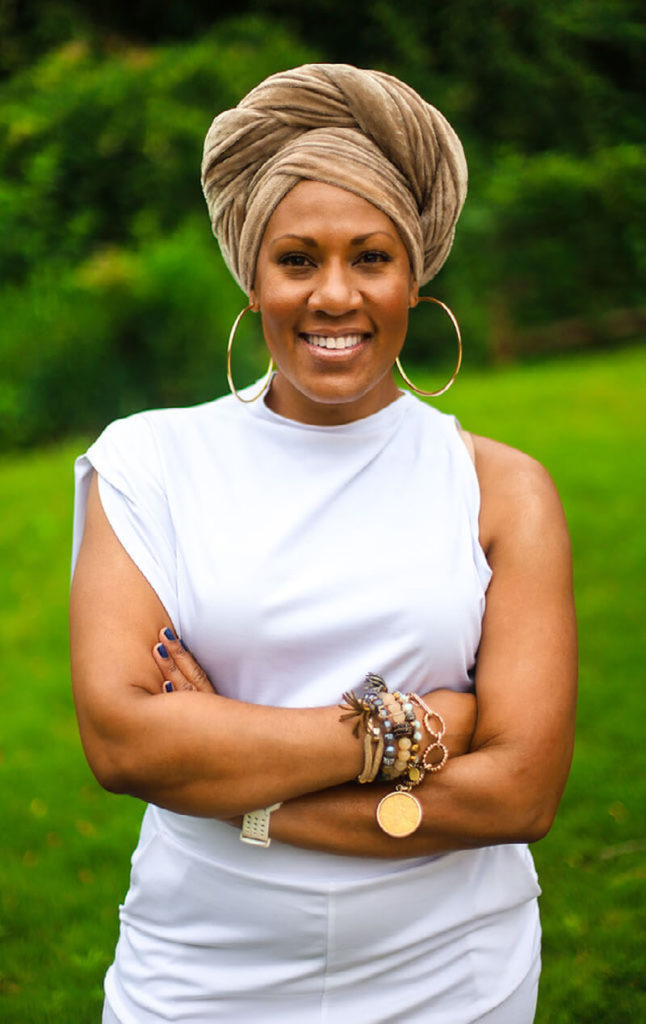In this episode:

Cha believes in the best of us. She desires that we learn to ask good questions. Ones that lead to transformation, open our minds and our hearts. The right questions are ones that help us to be seen and understood.
No longer can black people feel that they do not count, do not matter. It should not rest solely on the shoulders of the black people – who are under the weight of white people – to identify and implement solutions. It requires an engaged community, to come together, to find solutions. Together.
Cha was raised in the Bahamas where the color of her skin did not impact how people viewed and valued her. She did not know she was “black” until she came to America. Yes, she knew her skin was brown, but she didn’t know that there was a narrative about her skin color. A narrative that she had to fight against. When Cha arrived in America, she felt ugly, not even a girl. Cha felt that she was merely a black body.
When Cha was seven, a white boy called her a nigger. Cha did not know what that meant, but she knew it wasn’t good and realized it had something to do with her brown skin. No adult provided her comfort or protection, no adult denounced the boy’s racist comment. Cha encountered so many voices from children, teachers, and adults that made it harder to love herself, that made her feel less than human. It wasn’t until Cha became an adult to recognize the systemic failure of adults to protect her.
Cha’s heart was broken; her family did not have the tools to help Cha navigate racism and the self-loathing that resulted. All Cha wanted was to be liked, to have friends, to live an easier life. To not have the color of her skin precede her every entrance. Every night Cha prayed to God.
God if you love me, you will make me white.
It is important to consider other people’s experiences; it makes us more perceptive, empathetic, and caring. Black people in America have not had the same life experience as white people. The fact that our constitution was amended to make blacks human is a disgrace and insulting. For blacks were fully human before the amendment was written. The original language of the constitution should have captured Cha. Should have captured every black person.
When hard things are asked of you, the best of you rises up.
From an early age, Cha learned how to make white people like her. She feels she needs to put them at ease to make them comfortable. All of Cha’s life experiences are layered – and complicated by – her brown skin and the need to navigate the space of white people with finesse.
I have to find common ground with you so that you can see me.
Because of her brown skin, Cha fears the narrative white people have about her, and the nuances of that narrative. White people’s perception of Cha impacts her life. Cha feels like she is shadowboxing; she often doesn’t know what she’s coming up against. Cha fears when others have power – and wield that power – over her. Cha fears for her daughter’s safety every time she leaves the house for a run. It’s an added layer of fear. She worries that someone may have a narrative about her daughter that could pose a threat to her safety.
Cha wants all black children to know,
You are beloved. Wanted. Celebrated. Needed.
Yet. They need to also understand that narrative exists and that they will have to contend with. Black children must seek peace and the higher road. And yet, also acknowledge that the burden – once again – rests on the shoulders of black people to seek higher ground. Cha hates that children need to know these principles. She just wants them to successfully navigate life.
What is different about the response to George Floyd’s death? Why is the world unifying and protesting now? Whites have the ability to nuance the deaths of black people, rationalizing the circumstances. The was no room to nuance the death of George Floyd, who was asphyxiated under a man’s knee. We cannot ignore his death. The death of countless black people.
Seeing the collective energy and powerful response is fueling our momentum in quest of peace, love, and exorcism of systemic racism. Staying curious and caring about one another will help us listen to and understand each other.
White people can serve as shields for the black people in their lives, their community. That looks like stepping in, physically, emotionally, verbally, to protect. It looks like protecting each other, not leaving black people standing alone. Not today.
We must draw those who are using less peaceful means to express their rage into an inclusive conversation. How? By acknowledging their pain. Understanding that their expression comes from consistently not being respected, loved, or heard. Lacking any modality by which their voice is being heard.
Cha sees many beacons of hope today. We have the capacity to be amazing. Times of peace do not reveal the depth and strength of humanity. Growth and strength spring from the dry and crooked places. The land is dry. The ground is broken. Yet we are rising. Together.
Resources
Thank you for listening!
May our stories help forge your path forward. I hope you’ll stay tuned for our next episode and in the meantime, learn more about my story on my blog.

